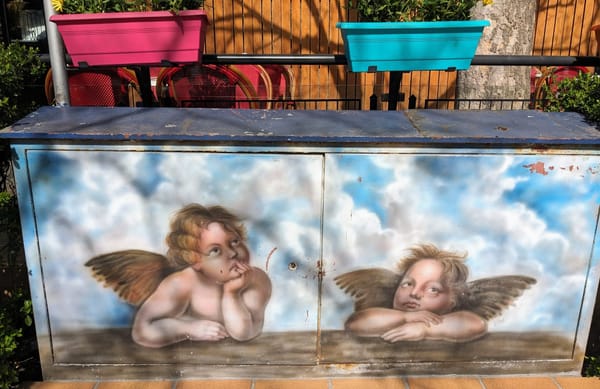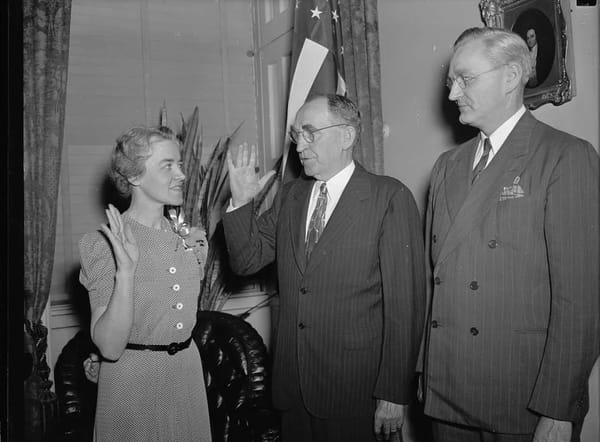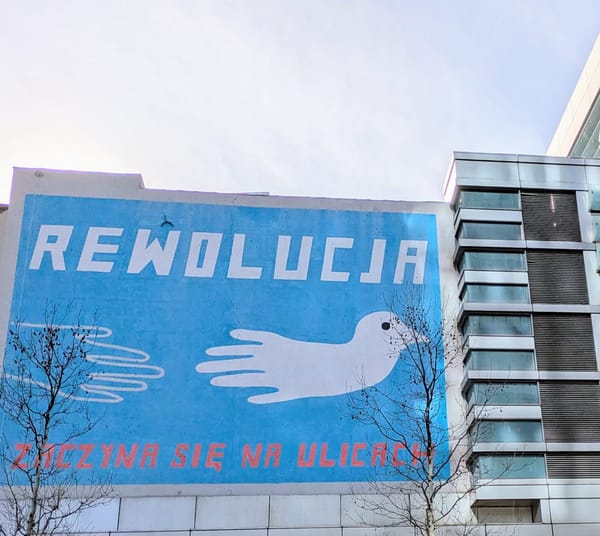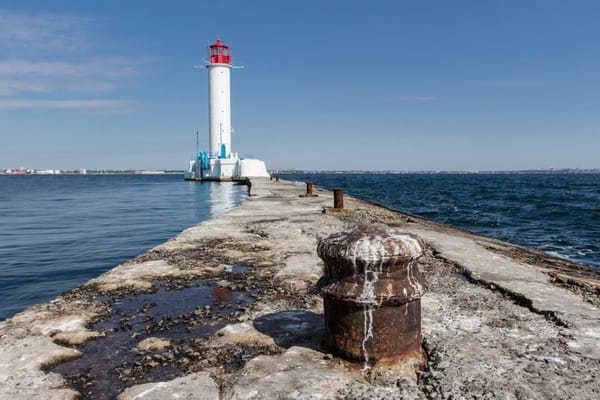There I was on a July Morning
The Uriah Heep song that came to represent change and hope, and spawned a holiday in Bulgaria
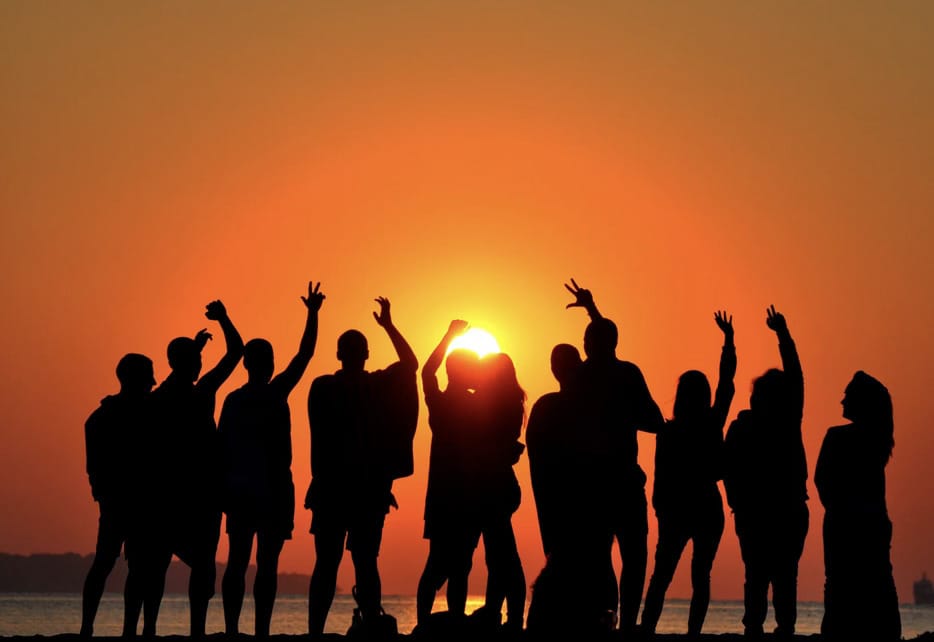
Happy holidays to Americans and Bulgarians. American readers are stressed out about the state of democracy marking 248 years since the signing of the Declaration of Independence this week. And Bulgarians are stressed out about the state of democracy celebrated a holiday named for a Uriah Heep song (the band, not the Dickens villain).
If you grew up West of the Iron Curtain, you may have a vague memory of the band, though my guess is you don’t recall any of their music. Maybe if you listen to Easy Livin’ or Lady in Black, you might recall that it got play on classic rock stations, though I bet you would not have remembered the band. It is highly unlikely that you recall July Morning, the song that became a favorite in Bulgaria as the Iron Curtain was being drawn back 35 years ago. And yet, July Morning is a holiday.
Notes from New Europe is a reader-supported publication. To receive new posts and support my work, consider becoming a free or paid subscriber.
Before I went to the Balkans last summer, I learned about the July Morning holiday. I was amused and confused. Uriah Heep? Really? Of all the Western bands from that time? They were and are a big deal? Those who know me and my work understand how I use music, sport, and food-ways as paths to understand different communities. (For example, few recent podcasts capture the shifts in New Europe in ‘89-90 than the Pineapple Street Studios series about The Scorpions’ Wind of Change). So as I met people in Bulgaria, I had to ask about July Morning.
In one of my first conversations with Penu Kiratzov—artist, animator, and CSD’s graphic designer—he presented a helpful framing:
Kiratzov: “When the wall fell nobody was prepared, nobody even thought that it was possible to happen in their lifetimes, but when it happened it happened fast and it was like a dam bursting. A real revolution happening for all. Suddenly there was freedom and people wanted to have it and even fight for it. There were huge demonstrations, strikes that the whole nation took part in, tent cities on the main squares for months and months where people were living and protesting.
Society was changing in a profound way and it was all happening fast. Everybody was for freedom, but nobody knew where we were going. We just had a very idealistic vision, but not real experience. Everybody was overcome by a special spirit and fraternity, sharing the same vision. I don't know how the 60's felt, but I presume there was a similar spirit and changes were coming that felt as if the whole society was going to be changed for the better. Like the 60's had their songs that became tha anthem of the young people so was it here in Eastern Europe.”

I was hooked by this framing. So I would occasionally annoy reach out to other colleagues at CSD. Maria Doichinova, an analyst in CSD’s Law Program became my go-to Bulgarian for questions about music. As July 1 was approaching, I asked her to share some of her thinking with us about July Morning, the holiday and the music, and what it tells us about culture, change, and nostalgia in this part of New Europe.
GG: Maria, Uriah Heep. As you know from when I shared my bewilderment with you I was more than a little surprised and perplexed when I learned of their lasting popularity. Please explain.....
Doichinova: I guess it has something to do with the gentle and romantic Bulgarian soul! No, seriously, I never thought about that until I saw your astonishment. Uriah Heep has always been here since I have been conscious. I always thought it was because of how their music was totally different from the propaganda music of the 70s and offered teenagers the perfect (romantic) escape from reality. But, in fact, Uriah Heep was really something in Russia in the 80s and we probably copied that. Their popularity has lasted that long most of all because we made the July Morning song the shadow national anthem of the summer New Year celebration – 1 July.
The legend says a group of conscripted troops (at that time Bulgarian boys’ worst nightmare was to go to the army for two years) were the first who celebrated THE July Morning in 1986. They were on their way for a home leave. But they missed the train and spent the night at the Varna beach singing and playing the guitar:
“There I was on a July morning
Looking for love
With the strength of a new day dawning
And the beautiful sun
At the sound of the first bird singing
I was leaving for home
With the storm and the night behind me
And a road of my own”
This was probably the most beautiful (and safe) way of expressing their thirst for change. That rising summer sun gave them the strength to resolve to chase their dreams (no one even went further suggesting how). And that feeling was so strong that we still sometimes see 1 July marked as a holiday in calendars.
Honestly, few 70s kids understood the lyrics. Still, all sensed that, as with in the West post-WW2, rock was perhaps the most widespread vehicle for youth rebellion and independence behind the Iron Curtain. It was among the few things that succeeded in initiating something similar to resistance against the communist regime in Bulgaria. For historical and economic reasons, Bulgaria was the most dependent and the most loyal of the former Soviet block states. We were often referred to as the 16th Soviet republic. Organized resistance like that in Hungary (1956) Czechoslovakia (1968) or Poland (late-1980s) was unimaginable here.
Uriah Heep was the first among hard rock bands to tour behind the curtain. In 1987, as part of Gorbachov’s Glasnost, they went to the USSR, and then had several shows in Bulgaria. That was something unseen at that time – a forbidden band live! The Bulgarian public was so unfamiliar with the concert culture that the show lasted some 40 minutes because the public didn’t know they had to shout out an encore.
GG: Some more familiar bands, like Deep Purple and The Scorpions are as big if not bigger. How come they don't have holidays named for them? Smoke on the Water day? (Just kidding....sort of).
Doichinova: If we had a Deep Purple holiday, it would rather have been a Child in Time Day (in response to nuclear threat and the Cold War). Led Zeppelin and Pink Floyd were and are also big, especially The Wall. The musicals Hair and Jesus Christ Superstar (featuring Deep Purple frontman Ian Gillan), together with the Hungarian Kopaszkutya (Bald Dog Rock), were pretty much the secretly distributed influencers among teenagers in the 1970s and 1980s.
We never managed to grow socially significant (rock) music as, for example, our neighbors in former Yugoslavia. Yugoslavia was perceived in Bulgaria as half-west at that time. They even had a HAIR premiere in 1969 - translated into Serbian and altering its satire to become locally relevant. YU Grupa, Bjelo Dugme, Riblja Čorba, Leb i sol and others sold out stadiums in the 1970s.
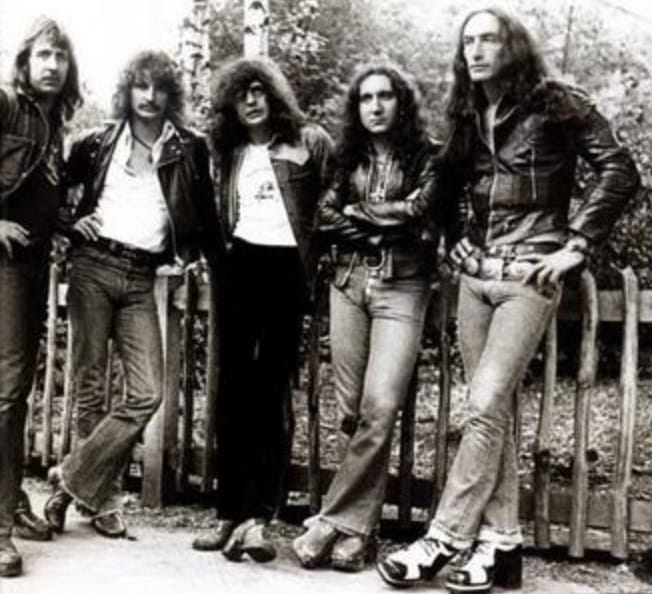
The Bulgarians managed to see their British and US teenage idols play live decades later. And maybe this is what kept hard rock relevant that long. The then teenagers aged (so did the bands) but we can easily imagine the anticipation and enthusiasm when announcing the concert of another band that blew your mind as a kid but you were not allowed to say it out loud.
GG: From my experience this last year, nostalgia is pervasive, and the past is ever present. And political. Has July Morning been politicized? Or does it remain a quality community ritual?
Doichinova: There is some nostalgia coming from the generation who felt their youth was robbed. They still can’t forget that back in the 70s people their age “in the West” could freely grow long hair, dance in the mud at Woodstock, and swear the government out loud. But this is not that essential anymore.
It is rather the hanging expectation that we have to discuss this past among ourselves and agree on whether living under communism was ‘good’ or ‘bad’. And this discussion never happened. It's like playing the same old tunes with the expectation that someone will strike up a conversation when they finish, but nobody has done so yet. Every year, this discussion grows more and more pointless and unlikely to occur.
It was impossible to politicize July Morning before 1990. And no one thought it was worth it after. Despite its popularity, it could not put together a sufficiently coherent and numerous group of people worth targeting. So it was getting less relevant in terms of being a symbol of political change over time and would probably carry the spirit of rebirth of summer and party time for the young of today.
Thank you for reading Notes from New Europe. This post is public so feel free to share it.
GG: It is hard to separate this music from an era where rock music overlapped with political and social change, at least in the US and the UK. Do you see a role for musicians (those of the past and those today) to be a mobilizing force in Eastern/Southeastern Europe?
Doichinova: Indeed, music was a driver for change in the 1960s and 1970s in the UK and the USA. But this was also the time when it became an industry. Behind the Curtain, at least in Bulgaria since it was not the same everywhere, communism took the Medici approach of patronage over arts where selected artists got… I will not say the wealth because they were far from Taylor Swift but… the privileges and comfort of writing and performing approved songs. And you can see the heritage of this approach today. Bulgarian musicians still frequently tell you that the State should support and the audience should respect them.
After the changes, Eastern European artists had to deal with the same challenges as their colleagues in the West. No one seemed well prepared for the changes in technology that turned the industry upside down. In the East, musicians were just learning how the industry principle worked when one morning the physical sellers were extinct. Plus, Bulgaria (for example) is a very small market with limited language coverage meaning that musicians struggle to earn their living. And many sold their souls. At a point, some 10 years ago, playing at political party pre-election events was a major share of their revenue. And we saw some awkward situations which generally made musicians lose ground.
GG: Is it too much to ask that music can encourage Bulgarians to communicate more effectively about the future they want, getting past the divisive discourse of the moment?
Doichinova: I am not optimistic. Polarization is huge on the music scene just as it is politically… and on any other field. There is a huge cultural gap between people living in big cities and smaller localities so the music divide confronts contemporary music fans in cities to chalga lovers locally. Rock is gradually turning to history without being able to monetize in Bulgaria from the charge it had between the 1960s and 1990s. Additionally, since no major figures come up in the domestic music scene, narratives are dictated by the US and British players.
Of course, some local musicians tried to get involved in politics but it did not end well for their popularity. Good performers from both camps proved to be lousy politicians. And there is more: traditional music is often being abused for nationalist purposes on track with the recent European political currents.
I am still waiting for an artist to go far beyond that. We can have a strong chance with a modern performer stepping on the local folklore and spelling out impactful messages with a sharp tongue. Hopefully, that is someone who stood awake all night at the Varna beach as a kid waiting for the sun to show up. And I tell you a secret. I have a ritual calling for such a person. I meet the sunrise on July 1 every year singing myself:
“With the day came the resolution
I'll be looking for you
La la la la, la la la la, la la la”
So kudos to Uriah Heep for putting out a song that became an anthem of positive change and hope in a way that they could never imagine. And big thanks to Penu and Maria for helping us unpack July Morning’s popularity to better understand what it represents to people. Music works in mysterious ways.
